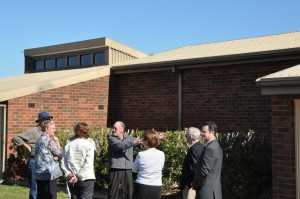Routine maintenance is a necessary for any home, from single family houses to multi-unit condominiums. While the premise of a condominium association trades privacy for amenities, one area of frequent contention is maintenance. Boundaries described in the master deed may be confusing or lack specific details on fixtures with odd dimensions, like bathtub traps that exist below unit’s boundaries, yet arguably are part of it. Countless disputes have erupted over doors, windows, and even door bells. In the case of the latter, the button technically exists outside of the unit, but controls a mechanism within it. Doors are a similar conundrum, while the deed may specify that the frame is within the common area, the door is the unit owner’s responsibility. Disputes over who should replace damaged doors is further aggravated by the utilitarian fact that doors and frames are sold as a set. Who pays for the door, and how much of the total cost are they responsible for?
A reasonable conclusion is to amend the Master Deed to include specific clauses that require unit owners being responsible for things outside of the unit’s specific dimensions. This includes windows, doors, plumbing fixtures, decks, vents, and even garage doors. Current associations will have to jump the hurdle of gaining a super majority from unit owners to make changes to the Master Deed. Trustees should inform residents that what they own and what they’re responsible for are not always mutually exclusive, even in a condominium association. There will most likely be opposition from owners that would rather push these costs on the association by declaring these fixtures part of the common areas, but revising the Master Deed, especially older ones, is a proactive step to mitigate future disputes. When revising the Master Deed, hire a lawyer with specific experience in drafting and revising condominium documents, and make sure that universal responsibilities are clearly spelled out instead of approaching in piecemeal, as many current documents do. This way, when future problems arise, there are clear-cut responsibilities for both unit owners and the association.
